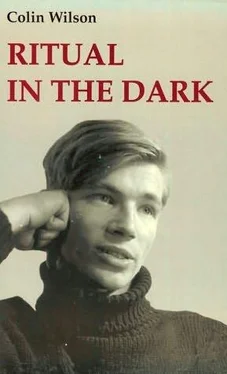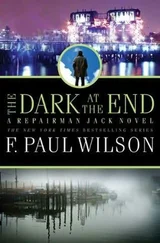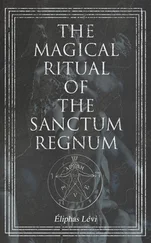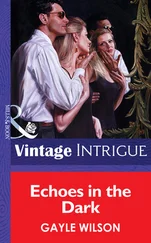Colin Wilson - Ritual in the Dark
Здесь есть возможность читать онлайн «Colin Wilson - Ritual in the Dark» весь текст электронной книги совершенно бесплатно (целиком полную версию без сокращений). В некоторых случаях можно слушать аудио, скачать через торрент в формате fb2 и присутствует краткое содержание. Жанр: Триллер, на английском языке. Описание произведения, (предисловие) а так же отзывы посетителей доступны на портале библиотеки ЛибКат.
- Название:Ritual in the Dark
- Автор:
- Жанр:
- Год:неизвестен
- ISBN:нет данных
- Рейтинг книги:4 / 5. Голосов: 1
-
Избранное:Добавить в избранное
- Отзывы:
-
Ваша оценка:
- 80
- 1
- 2
- 3
- 4
- 5
Ritual in the Dark: краткое содержание, описание и аннотация
Предлагаем к чтению аннотацию, описание, краткое содержание или предисловие (зависит от того, что написал сам автор книги «Ritual in the Dark»). Если вы не нашли необходимую информацию о книге — напишите в комментариях, мы постараемся отыскать её.
Ritual in the Dark — читать онлайн бесплатно полную книгу (весь текст) целиком
Ниже представлен текст книги, разбитый по страницам. Система сохранения места последней прочитанной страницы, позволяет с удобством читать онлайн бесплатно книгу «Ritual in the Dark», без необходимости каждый раз заново искать на чём Вы остановились. Поставьте закладку, и сможете в любой момент перейти на страницу, на которой закончили чтение.
Интервал:
Закладка:
Sorme followed the short, broad-shouldered figure down the stairs. Stein said over his shoulder:
I could see he was becoming tired. He tires very easily.
Quite.
They let themselves out of the front door. Sorme said: Well, goodbye, Professor. I hope we shall meet again.
You are not walking this way?
No. This is my bicycle.
Ah. I see. Very sensible. Well… perhaps you would care to join me in a cup of coffee?
Sorme said: I'd be delighted!
It surprised him that the German should ask. While he had been in the priest's room, he had been certain that Stein regarded him as a superfluous third. He felt suddenly friendly towards the little man. He replaced the bicycle clips in his pocket, and walked beside Stein along Rosebery Avenue, and into the Farringdon Road. As they walked, Stein explained:
Larry and I studied together in Rome forty years ago. At that time I was to become a Jesuit. Imagine me!
What happened?
I discovered the writings of Freud, and changed my mind!
The German gave a throaty chuckle.
Didn't you have to study medicine, though?
I did. My parents preferred that I become a doctor rather than a priest, so we had no disagreement. I left Rome, and went to Vienna to seek out Freud…
The cafe was empty; a woman was cleaning the stone floor with a mop and a bucket. She stood the mop in the corner, and dried her hands on her apron to serve them coffee. Stein produced a packet of Manikin cigars, and offered it to Sorme. He lit one, and leaned back in his chair, puffing meditatively until the coffee arrived. As the woman leaned between them he looked across at Sorme, and asked suddenly:
How is Austin nowadays?
Taken unawares, Sorme said with surprise:
You know Austin?
I… know him slightly. But I know a great deal of him.
With instant certainty, Sorme knew that this was the reason Stein had asked him for coffee. He said:
Oh, he's very well, thanks.
He poured the jug of cream into his coffee, and left the next move to Stein.
You are a close friend of his?
Sorme looked into the ice-blue eyes, and wondered at the defensiveness that rose in him.
I know him fairly well. He interests me greatly…
Stein smiled suddenly. Leaning forward, he said quietly:
You do not have to be alarmed. I know about him through Larry. I know that he is a sadist.
Why are you interested, if you don't mind my asking?
Not at all. You do not have to repeat any of this to him…
No.
He was in Dusseldorf for a time, and he was known to the police. Nothing serious, of course, but I came to know of it through my connection with the police.
Stein leaned back, and drew deeply on his cigar. He gave the impression that the subject had suddenly ceased to interest him. Sorme drank his coffee, allowing the silence to lengthen. He was wondering whether Stein was to be trusted, and what Stein thought he might be able to tell him about Nunne. Stein caught his eye and smiled, as if they were two passengers in a railway carriage who happened to be facing one another. Sorme said: Professor, I'd like you to answer me a question, if you would… Has Austin any reason to be afraid of the police?
Stein answered promptly:
As far as I know, no. Can you think of any?
No. But then I'm neither a homosexual nor a sadist.
I see. But tell me, why are you Austin's friend if you have so little in common with him?
I happen to like him…
Quite. There is nothing strange about that. How long have you known him?
Sorme said, smiling: Precisely a week.
Sorme could almost see the disappointment and loss of interest. Stein stubbed out the cigar and emptied his coffee cup. He said:
You should talk to Larry about Austin. He knows him better than I do. But allow me to presume to offer you a piece of advice. You may believe you can have a relationship with Austin in which his homosexuality and sadism are unimportant. But don't take this for granted. He may surprise you.
Sorme said: Thanks, I won't.
Stein looked at him steadily for a moment, the bushy eyebrows drawn together.
Then he said briefly:
Good.
He stood up, and dropped a half-crown on the counter. The woman said: Thank you, sir.
Outside again, in the dull light of the Farringdon Road, Stein said:
Larry is a remarkable man. But he will not live a great deal longer. If you like him, you should see him as much as you can.
I will. I like him very much — although I've known him for less than a week.
Really? You are a person who makes many acquaintances?
No. I'm not.
No? Well… I must say goodbye. Or rather, auf Wiedersehen. We shall meet again.
Sorme shook the outstretched hand; the grip was strong. He stood there, watching Stein walk in the direction of the Embankment, the white head thrown back.
He locked the door of his room, and lit the gas fire; his hands and feet were numb. The knees of his trousers were wet; it had begun to rain as he passed St Pancras. He removed the trousers and shirt, and slipped on his dressing-gown, then filled the kettle with water and set it on the gas. He sat with his legs stretched out to the fire, too sleepy to read, surprised at the inner silence that took possession of him as he stared at the red-hot fire. It was complete concentration and certainty. His tongue probed his teeth, found a hollow that needed filling, and sucked at it. But there was no sense of urgency, no guilty feeling about his procrastination. He reached out for the book on the table — it was The Trial of John Watson Laurie — and began to read the introduction. After reading a few pages, he dropped it on the floor. The story of the Arran murder seemed commonplace and boring compared with the Whitechapel crimes. The kettle boiled; he made tea, and got into bed to drink it, turning the gas fire low, now feeling completely warmed and relaxed. As he drank, he felt a temptation to write in his journal, to try to record the insight that was growing inside him. Only the fear of destroying it by trying to intellectualise it restrained him. When he had finished the tea he placed the cup on the chair and sat staring at the opposite wall, not fully aware of it, but knowing that he had achieved the state of creativity that had eluded him for the past year. It seemed ironical, almost funny. He was in his own room; the door was locked, in case Carlotte came to summon him to the phone; she would then assume he was out. He felt suddenly as if the world had contracted within the confines of his four walls, and there were no more doubts. What he had achieved was only a certainty of his own existence, it was a recovery of subjectivity. He thought: the man who possesses his subjectivity possesses everything; and knew it to be true. But it was difficult to keep awake. The insight brought a sense of acceptance, of affirmation, that tempted him to lie down and close his eyes. He was at once lying on a hillside above the sea, lulled to sleep by sunlight and insects, and standing on the walls of the palace at Mycenae, watching the soldiers drilling in the courtyard. All poetry and philosophy were contained in the certainty.
To defeat the drowsiness, he switched on the gramophone, and put a record of Sibelius on the turntable. The first notes of the symphony intensified the insight, an awareness of his past. The sensation reminded him of his dream of Nunne in the brothel, and Nunne made him think of Nijinsky. It was all that Nijinsky had ever meant to him, concentrated into one emotion. It was belief; belief in himself, and in life, and in God. He felt like saying: I accept life. I accept everything.
He thought, with a kind of blank wonderment: I have recovered it. I have recovered my subjectivity. If I could live like this all the time, I'd never doubt again.
Читать дальшеИнтервал:
Закладка:
Похожие книги на «Ritual in the Dark»
Представляем Вашему вниманию похожие книги на «Ritual in the Dark» списком для выбора. Мы отобрали схожую по названию и смыслу литературу в надежде предоставить читателям больше вариантов отыскать новые, интересные, ещё непрочитанные произведения.
Обсуждение, отзывы о книге «Ritual in the Dark» и просто собственные мнения читателей. Оставьте ваши комментарии, напишите, что Вы думаете о произведении, его смысле или главных героях. Укажите что конкретно понравилось, а что нет, и почему Вы так считаете.












